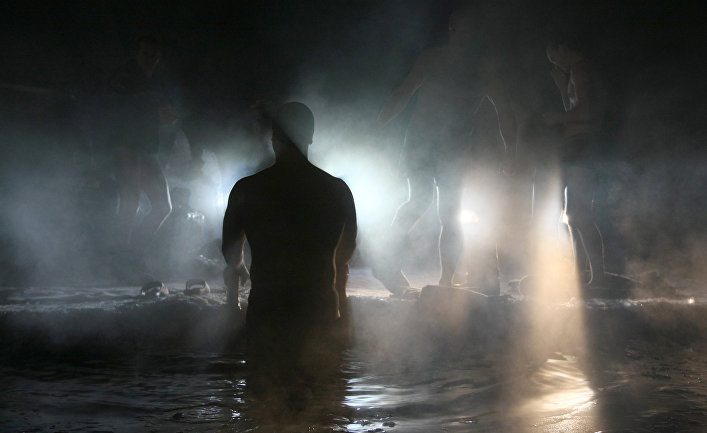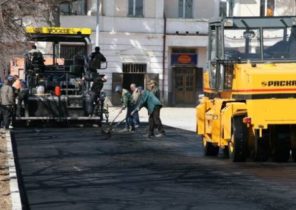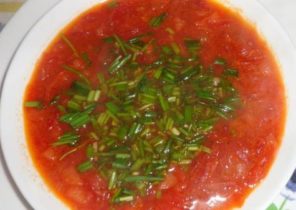
Athletes often say that post-match ice baths are just incredibly good for their muscles. And they are willing to believe. Columnist for BBC Future decided to evaluate the usefulness of immersion in ice water after a strenuous workout.
After each match, regardless of, it ended in victory or defeat, the British tennis number one Andy Murray performs the same sequence of actions.
He takes a shower, meal and drink some water, then goes in for a massage and, finally, taking an ice bath. Within eight minutes he is in the ice water with a temperature of 8-10°C.
And he’s not the only athlete using ice baths to recover after a competition or after a hard workout.
To put in order your muscles, athlete-semijarka Jessica Ennis-hill climbed in the dumpster on wheels, filled with ice water.
Looking at the success of these and other athletes who resort to such methods, it can be assumed that ice baths are effective, but scientific evidence that this is quite a painful procedure is of benefit, yet not so much.
Proponents of this procedure believe that the body immersion in very cold water promotes recovery after exercise by reducing the temperature, slowing of blood flow and eliminate inflammation in muscle tissue.
Many of us, pulling a muscle, I noticed that the pain and swelling are if to the damaged place to put a package of frozen vegetables.
In one study the participants after a hard run suggested placing one foot in ice water and the other to leave just like that. In cold water the swelling was noticeably reduced.
Most of us relieved the pain does not hurt, but for professional athletes or Amateur enthusiasts who want to build muscle, similar ways of dealing with inflammation can be counterproductive.
It is known that immersion in cold water slows blood flow, and this may lead to slower muscle protein synthesis process that promotes muscle recovery after injury or high loads.
For example, training to weightlifting has borne fruit, inflammation certain extent just necessary to ensure that the muscles can recover, so deliberately to reduce it.
However, inflammation causes pain, and because we are often trying to get rid of it and discomfort. However, there is evidence that it may prevent recovery.
Studies using anti-inflammatory drugs such as ibuprofen, have yielded conflicting results. Some indicate that the reduction of inflammation, and even enhances the health of the patient, but also decelerates the recovery process.
However, a review of the most rigorous of these studies showed that some inflammation is helpful, and that the elimination of the inflammatory reaction is not the best way.
However, the question of what degree of inflammation is only acceptable, and at what stage of the restoration process, it brings the most benefit remains open.
It can also depend on age. In people older than 65 years who were taking anti-inflammatory drugs during the 12-week course of training, the volume of the muscle increased more than those who took a placebo.
Therefore, at least for athletes older lowering inflammation makes sense.
However, more young people in top physical shape, it can lead to slower muscle recovery process.
For those who are not in training seriously, it may not matter that much, and they could afford to ease the pain, but high-level athletes whose goal is to become stronger, better to avoid it.
Similar processes can occur in the case of ice baths, but experiments with animals have shown that they cold works better.
When rat muscles (under anesthetic), apply ice, and inflammation was reduced without slowing down the regeneration of muscle tissue.
However, in people whose muscle is much larger, the ice has the same effect.
It removes swelling and soreness, but a study in which participants spent three months doing strength training and took ice baths, showed that the recruitment of muscle mass and strength they have been not so high.
Studies in which one half of the participants after the exercises sitting in an ice bath, and the other is resting, is very rare. However, a group of scientists from Australia, Norway and Japan, who had spent the previous study, recently published another paper.
In it they contrasted the icy bath isn’t relaxing and calming series of exercises at the end of the training, which is practiced by many athletes.
Nine active men 45 minutes performed lunges, squats and other exercises. After training for weeks, took ice baths, sitting 10 minutes in an inflatable pool with cold water on the belt.
They were forbidden to take a shower at least two hours after a workout, so they were not warm so fast.
During the other weeks of their post-workout regime was more benign: all the same 10 minutes they slowly pedaled the bike.
Scientists took men blood tests at various points in time before and after exercise, and after 2, 24 and 48 hours after a cold bath or doing the elliptical, they did a muscle biopsy of the thigh.
The number of markers reaction to the inflammation and muscle tension after exercise increased, which was expected, but the ice bath, it is not affected. Cold water does not reduce inflammation.
In this regard, two questions arise: whether the ice bath reduces inflammation (perhaps not), and whether you want to accept it, if muscle recovery while slowing down.
Jonathan Rush from Queensland University of technology, who led the study, wondered whether the athletes to reconsider their strategies.
He recognizes that ice baths can be helpful for quick recovery between matches in the same competition, but not if you want to permanently strengthen their muscles.
Finally, the study suggests that something unpleasant does not benefit us. Usually the harm we inflict on only pleasant things. So athletes probably will not be sad if they say that about the ice procedure can be forgotten.







